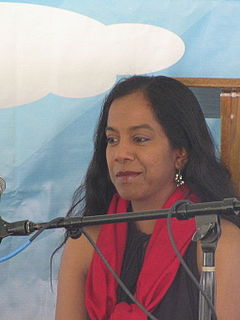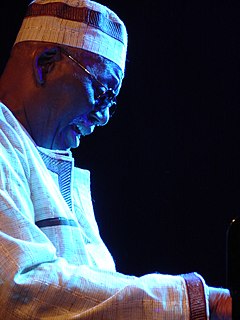A Quote by Ru Freeman
Diatonic, he heard the word in his head. Chromatic, pentatonic, hexatonic, heptatonic, octatonic, each iteration of the scale opening innumerable possibilities for harmony. He thought about the Pythagorean major third, the Didymus comma, the way the intervals sound out of tune rather than as though they were different notes. This, he thought, was where his brilliance at mathematics bled into his love of music; music was the realm in which his mathematical brain danced.
Related Quotes
When we live apart from God, our lives get out of tune - out of harmony with others and with God. But if we live in tune with the Master, we, too, will find ourselves surrounded by His beautiful music. As this new year begins, ask God to help you tune your life every day to His Word, so you can bring harmony and joy to those around you.
Each individual composes the music of his own life. If he injures another, he brings disharmony. When his sphere is disturbed, he is disturbed himself, and there is a discord in the melody of his life. If he can quicken the feeling of another to joy or to gratitude, by that much he adds to his own life; he becomes himself by that much more alive. Whether conscious of it or not, his thought is affected for the better by the joy or gratitude of another, and his power and vitality increase thereby, and the music of his life grows more in harmony.
He appeared to enjoy beyond everything the sound of his own voice. I couldn't wonder at that, for it was mellow and full and gave great importance to every word he uttered. He listened to himself with obvious satisfaction and sometimes gently beat time to his own music with his head or rounded a sentence with his hand.
I'm serious, Harry, don't go." But Harry only had one thought in his head, which was to get back in front of the mirror, and Ron wasn't going to stop him. That third night he found his way more quickly than before. He was walking so fast he knew he was making more noise than was wise, but he didn't meet anyone. And there were his mother and father smiling at him again, and one of his grandfathers nodding happily. Harry sank down to sit on the floor in front of the mirror. There was nothing to stop him from staying here all night with his family. Nothing at all.
No Senses stronger than his brain can bear. Why has not Man a microscopic eye? For this plain reason, Man is not a Fly: What the advantage, if his finer eyes Study a Mite, not comprehend the Skies?... Or quick Effluvia darting thro' his brain, Die of a Rose, in Aromatic pain? If Nature thunder'd in his opening ears, And stunn'd him with the music of the Spheres... Who finds not Providence all-good and wise, Alike in what it gives, and what denies?
The expectation is this low, gravelly voice for John, but I went through his early recordings and there were songs in there where the voice was so different, I wasn't even sure if it was him singing, ... So it was interesting to me that we would see him develop the Man in Black sound. I thought it was really important that his voice change as his persona slowly solidified. The music was really the doorway into the character.
At first I didn't understand what [Thelonious Monk] was doing, but I went back again, and what I can say about Monk is that I heard ancient Africa in his music. When he played, it was like a ballet. He captured the sound of the universe. Monk could take a triad, a simple chord, and make it sound dissonant. I'm sure that element he had in his piano was part of the two years he spent traveling with his mother in gospel music in the tent shows.
A man is reputed to have thought and eloquence; he cannot, for all that, say a word to his cousin or his uncle. They accuse his silence with as much reason as they would blame the insignificance of a dial in the shade. In the sun it will mark the hour. Among those who enjoy his thought, he will regain his tongue.
He thought back on his family with deep emotion and love. His conviction that he would have to disappear was, if possible, even firmer than his sister's. He remained in this state of empty and peaceful reflection until the tower clock struck three in the morning. He still saw that outside the window everything was beginning to grow light. Then, without his consent, his head sank down to the floor, and from his nostrils streamed his last weak breath.
When I was working on 'To Pimp A Butterfly' and 'DAMN.,' I'm really making music for Kendrick. It's a different mindset than when I'm making music for me. I'm trying to get into his head and figure out what he wants because it's his vision. That's what I expect from people when they're playing on my records.
The idea was to have a basin inverted on his head and his hair cut to the shape of it. Skill and money were not needed. Then the idea grew that it was more convenient to leave the basin on his head. Stray thoughts were trimmed along with stray hair; brain-vines, tentacles of thought, were not encouraged to wander. Then, in the interests of human economy, the head of adaptable man became a basin of uniform shape—a basin, a crash helmet. Safe at last; no more thought-cuts.





































